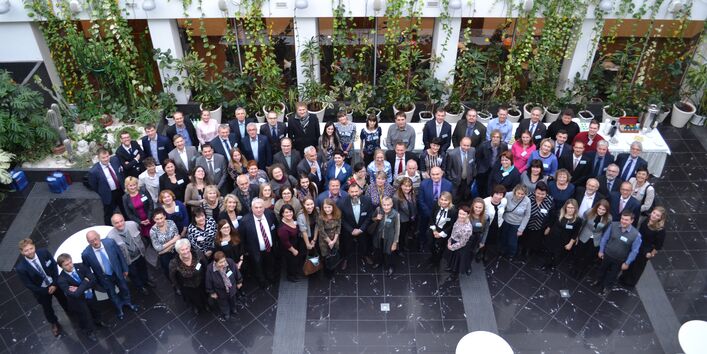13th German-Russian Environmental Day 2016 in Kaliningrad Region
The German Environment Agency organized a joint event with the German Federal Environment Ministry and the Agency for International and Interregional Relations of the Government of the Kaliningrad Region of the Russian Federation on 27 October 2016 in Kaliningrad. More than 130 participants attended the event.
German and Russian experts agreed to intensify the exchange of information when they met for the 13th German-Russian Environmental Day in Kaliningrad Region to discuss current local environmental issues. The aim of the exchange is to familiarise regional stakeholders with developments in Russia and to introduce examples of international best practice. The geographical closeness of the Kaliningrad Region of the Russian Federation to the European Union and its significance for environmental policy in the Baltic Region are at the focus of the Federal Ministry for the Environment‘s cooperation with the Russian Federation. The German-Russian Environmental Days started in 2002 and provide the framework for expert workshops on current environmental policy issues that concern German-Russian collaboration.
Two parallel seminars were held at the 13th German-Russian Environmental Day:
- Best Available Techniques (BAT) and Best Practices in different economic sectors (Seminar I)
- Reduction of negative impacts on the Baltic Sea: experiences, practice, results and monitoring (Seminar II)
Russian experts presented current developments in the Kaliningrad region. They discussed with the German experts present the transferability of the German action plans also presented at the event. Seminar I helped affected businesses, regulatory bodies and stakeholders in society to gain a better understanding of their roles and of the possibilities offered by the current introduction of BAT in Russia. The participants in Seminar II discussed the opportunities for international cooperation to implement the HELCOM Baltic Sea Action Plan. The chairs presented conclusions and recommendations in the final plenary session, which were then summarised in a closing statement. The aim is to motivate stakeholders to engage in targeted follow-up activities.
The event offers the various stakeholders in local environmental affairs (e.g. environment ministry of the Kaliningrad Region, other entities responsible for environment in the region, counties and municipalities, businesses and scientific institutions) a regular forum for an exchange at expert level. The transfer of knowledge serves as further training for the participants and strengthens their scope for action in future environmental protection measures and related cooperative projects.
